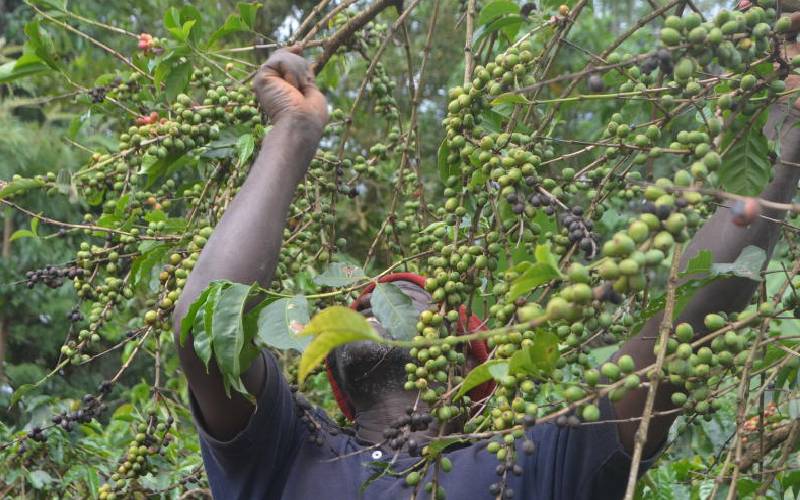×
The Standard e-Paper
Join Thousands Daily

Stakeholders have dismissed the new coffee sector regulations as counterproductive.
Some farmers from Central Kenya yesterday faulted the Crops (Coffee) (General) Regulations of 2019, saying they would further entrench the cartels that have overseen the decline of the industry that was once a leading foreign exchange earner for the country. The new regulations introduced different measures to revive the sector, including increased oversight of industry players.